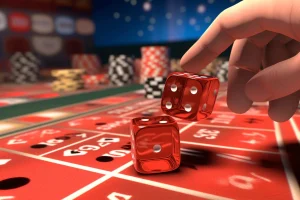
Gambling requires both statistics and mathematics. For instance, casino’s house edge calculations use probability; these show players how much they will lose on average and can also help promote rational behavior to combat gambler’s fallacy.
Casinos rely on precise mathematical calculations to guarantee they will make a profit, so understanding casino math is of utmost importance.
Probability
Chance of winning at casino games depends on the odds associated with that particular casino game, which are used as a measure of winning and losing probability and can be expressed either as ratios or fractions, such as 3/1.
The House Edge refers to the mathematical advantage that commercial gambling venues hold over their patrons as they play gambling games over time. Calculated using the Law of Large Numbers, which generates stable long-term results on averages; it guarantees that casinos earn more money from player payouts than they pay out as bonuses.
Understanding the House Edge is essential in making informed decisions regarding which gambling games to pursue for profit. For instance, slot machines with high House Edges should be avoided in favor of low edge games like poker or baccarat; furthermore, more paylines on video slot machines means higher House Edges.
Odds
Odds of winning in casino games refers to the probability that a specific outcome will take place, typically expressed either decimally or fractionally; such as 50% for coin tosses. Odds should not be confused with house edge, which refers to any mathematical edge casinos possess over their players.
The house edge is calculated based on thousands of gambling rounds over time and utilizes the Law of Large Numbers to produce stable long-term averages in random events such as casino gambling. It helps casinos cover their costs and make profits as their ultimate goal as commercial businesses; therefore it is imperative for casino gamblers to understand this concept to avoid making foolish bets that result in losses – whether playing roulette or craps, understanding this key concept will enable smart decision-making, while selecting games with low House Edges increases your odds of success and maximize winning potential!
Payouts
Every casino game, be it two-sided coin flipping, a roulette wheel with 37 or 38 slots or six-sided dice has probabilities that determine its outcome. While many gamblers remain unaware of these odds, they still impact expectations; without understanding this mathematics behind gambling it’s impossible to profit from gambling and make a profit.
Probabilities for events depend on sample space and field definitions within a Boolean algebra, giving skilled players access to information they can use when making betting decisions. They use this knowledge to calculate an expected value (EV) of bets which represents how often one would expect either side to win/lose over time.
The house edge refers to the mathematical advantage commercial gambling venues hold over their customers. This advantage allows casinos to cover costs associated with staff, equipment and facilities while turning a profit. Furthermore, it serves as an indicator for whether playing any particular game is worthwhile.
Taxes
Many gamblers do not understand how taxes influence the house edge. This percentage measures what a casino expects to make over time after making millions of spins and rolls; although not a guarantee that any given bet will be profitable, it can help determine whether making certain bets makes financial sense.
Casinos are businesses, just like any other, which must pay taxes just like any other enterprise. This fact can be seen reflected in their odds. Anyone believing a low house edge means greater opportunities should reconsider betting with real money; otherwise it would be like saying you cannot profit in stock market trading because there must be taxes paid per trade transaction.
Gambling has long been an activity enjoyed by humans, dating back to ancient civilizations. While betting was once a widespread pastime, organized sanctioned betting only started taking place with lotteries in the 15th century.





